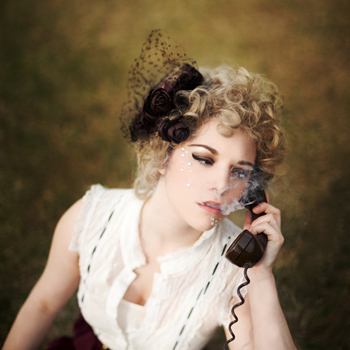The grandmother’s longing is almost palpable here and has so many layers. It seemed to me that part of her longing for a grandson is to set straight the interpretation her own mother gave to her, to banish the loneliness. Was that your intent?
That’s certainly a part of it. I was interested in creating a character who had many reasons to be bitter, but who refused to give into her helplessness. I wanted Araxie to continue to dream of good things, to believe in the power of companionship and family, if not for herself, then for her daughter-in-law. But, of course, Araxie’s desire for Carol to know motherhood allows her the opportunity to have a grandson and experience a new kind of love. Perhaps one that doesn’t end in disappointment. And perhaps one that, yes, ultimately proves her mother wrong.
I love the image of baby birds in her mouth. Can you say more about that?
I’m really uncomfortable with how certain writers do dialects and accents in their work, so for a long time, I was against writing in one. So often it’s jokey, or the writer just relies on a lack of articles—it just makes me uneasy. I decided at some point to challenge myself and capture the voice I’d been hearing all of my life—the voice of my aunts, grandmothers, and neighbors. Thinking about how Araxie would say contraceptive made me hear the tziv, tziv and I thought well, of course, she’s going to dream that baby birds are in her mouth—she wants to tell Carol she knows about the pills but can’t. The words are stuck in her throat, until one day, this day, they finally fly out.
Writers often have themes or motifs they return to. Do your grandmothers and aunts have a recurring place in your writing?
My fiction grapples with the intersections between gender, sex and ethnicity, and I’m fascinated particularly by the idea of Armenian motherhood—mostly because I owe all of my artistic sensibilities to my mother. She’s the soul of my work; everything I write is part of a larger effort to immortalize her, to share her love and wisdom with the entire world. Even if I’m not explicitly working with a “mother” character, I feel like my respect for her, and other Armenian mothers I have known, inform every story I write.
Who are your favorite flash authors?
While I do understand that flash fiction is its own beast, I can’t help but think the best writers in the long form can and do bring that same mastery to the short form. And it’s those writers that I gravitate towards. Maybe because I feel like a lot of contemporary flash fiction is insular (though that’s also my complaint about short stories). I admire work that has consequence, that feels bigger, that engages with the world. Jamaica Kincaid’s “Girl,” for example, is probably my favorite “flash.”
What is your job as an international editor? And how do you balance this with your own writing?
3) As part of my editorship with Hayden’s Ferry Review, I work with foreign writers and translators to help them find the best way in which they can share their stories and truths. This is a pleasure and honor—to help bring forth other voices as I learn to hone in my own. Great art is the best instructor, and I find that international fiction often teaches and inspires me in a way that other literatures do not; nothing gets me more excited about starting a new story or returning to an old one than reading fiction from writers like Ferida Durakovic, Elena Alexieva, or Miha Mazzini (all forthcoming in HFR issue #51, so check it out!)



 The SmokeLong Grand Micro Contest (The Mikey) is now an annual competition celebrating and compensating the best micro fiction and nonfiction online.
The SmokeLong Grand Micro Contest (The Mikey) is now an annual competition celebrating and compensating the best micro fiction and nonfiction online.